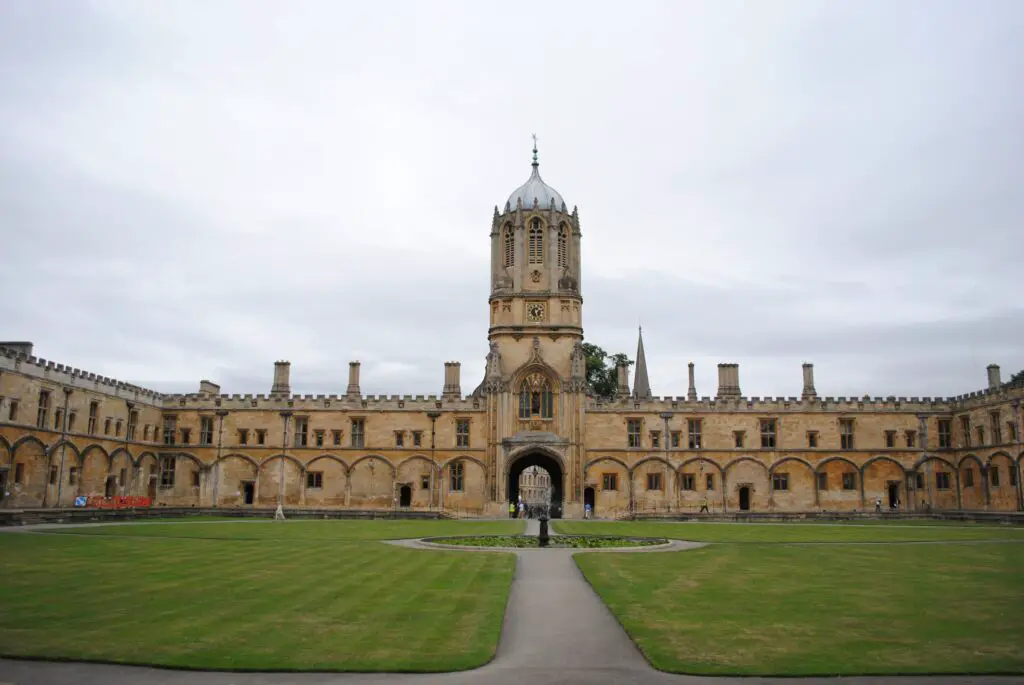Switzerland is a country known for its breathtaking landscapes, rich culture, and high standards of living. But did you know that education in Switzerland is also highly regarded? One of the most significant aspects of education in Switzerland is that college is almost free. Yes, you read that right! College education in Switzerland is almost free for both local and international students. In this article, we will explore the reasons behind this policy and how it affects Swiss society. Let’s learn about ‘Is College Free In Switzerland?’.

Is College Free In Switzerland?
Switzerland is a country that takes education seriously, and its government sees education as a fundamental human right. As a result, they have made a conscious effort to make higher education accessible to all. Switzerland’s constitution states that every person has the right to education, and the government has ensured that this right is upheld.
Average Fee In colleges Of Switzerland:
Depending on the type of institution and the course of study, the typical tuition in Swiss colleges can change. In general, both domestic and foreign students are not required to pay tuition at Swiss public universities. However, there is a semester fee that students must pay. This fee can be anywhere between CHF 500 and CHF 800 (roughly USD 550 and USD 880), depending on the university and the services provided.
On the other hand, tuition fees are typically charged by private universities in Switzerland, and they can range from CHF 15,000 to CHF 50,000 (roughly USD 16,500 to USD 55,000) per year for graduate programs and CHF 10,000 to CHF 35,000 (roughly USD 11,000 to USD 38,500) per year for undergraduate programs.
There Are Many Reasons For Such An Accessible Fee in Switzerland –
Subsidized Education:
The Swiss government heavily subsidizes higher education institutions, making it possible for Swiss universities to offer high-quality education at a low cost. Swiss universities are among the top-ranked in the world, and their academic programs are highly respected.
Very low Tuition Fee:
Tuition fees in Swiss universities are relatively low, with some universities not charging any tuition fees at all. While some universities do charge tuition fees, these fees are significantly lower than those in other countries such as the United States and the United Kingdom. For instance, the University of Zurich, one of the most prestigious universities in Switzerland, charges a tuition fee of CHF 850 per semester, which is equivalent to around USD 935.
Various Scholarships:
Despite the low cost of tuition fees, the Swiss government offers financial assistance to students who may find it challenging to afford the cost of education. Swiss students can apply for scholarships and grants from their universities, and the government offers financial assistance to students from low-income families.
Benefits For International Students:
International students are also eligible for financial aid, but the amount they receive may vary depending on the university they attend and their financial situation. However, international students are expected to cover their living expenses while studying in Switzerland.
Flexible Education System:
Another factor that makes higher education in Switzerland accessible is the flexibility of the Swiss education system. Students in Switzerland can choose from a range of academic programs that suit their interests and career goals. Swiss universities offer undergraduate, graduate, and postgraduate programs in various fields of study, including science, engineering, humanities, and social sciences.
Innovative Practical Training:
The Swiss education system also emphasizes practical training, which means that students have access to hands-on experience that prepares them for the workforce. This approach to education has made Swiss graduates highly sought after by employers around the world.
Accessible Higher Education And Its Impact On Swiss Society:
The accessibility of higher education in Switzerland has had a positive impact on Swiss society. It has helped to reduce inequality and promote social mobility. Swiss citizens from low-income families can access higher education without worrying about the cost of tuition fees, which has allowed them to pursue their academic goals and achieve their full potential. Switzerland’s policy of almost free higher education has also attracted international students to study in the country. According to a report by the Organisation for Economic Co-operation and Development (OECD), Switzerland is the second most popular destination for international students, after the United States.
The reason why the Swiss Government promotes International Students
The presence of international students in Swiss universities has also contributed to the cultural diversity of the country. International students bring with them their unique cultures and perspectives, which enriches the learning experience of Swiss students and helps to foster a more tolerant and inclusive society.
The Top Colleges In Switzerland
The top Swiss Colleges are as follows:
- ETH Zurich – Swiss Federal Institute of Technology Zurich
- Ecole Polytechnique Fédérale de Lausanne (EPFL)
- University of Zurich
- University of Geneva
- University of Basel
- University of Bern
- University of Lausanne
- University of St. Gallen (HSG)
- Lucerne University of Applied Sciences and Arts
- Zurich University of Applied Sciences (ZHAW)
Conclusion
In conclusion, Switzerland’s policy of almost free higher education has made it possible for Swiss citizens and international students to access high-quality education at a low cost. This policy has helped to reduce inequality and promote social mobility in Swiss society. The Swiss education system’s flexibility and emphasis on practical training have also made Swiss graduates highly sought after by employers around the world. If you are considering studying abroad, Switzerland should be at the top of your list. With its stunning landscapes, rich culture, and world-class education system.

